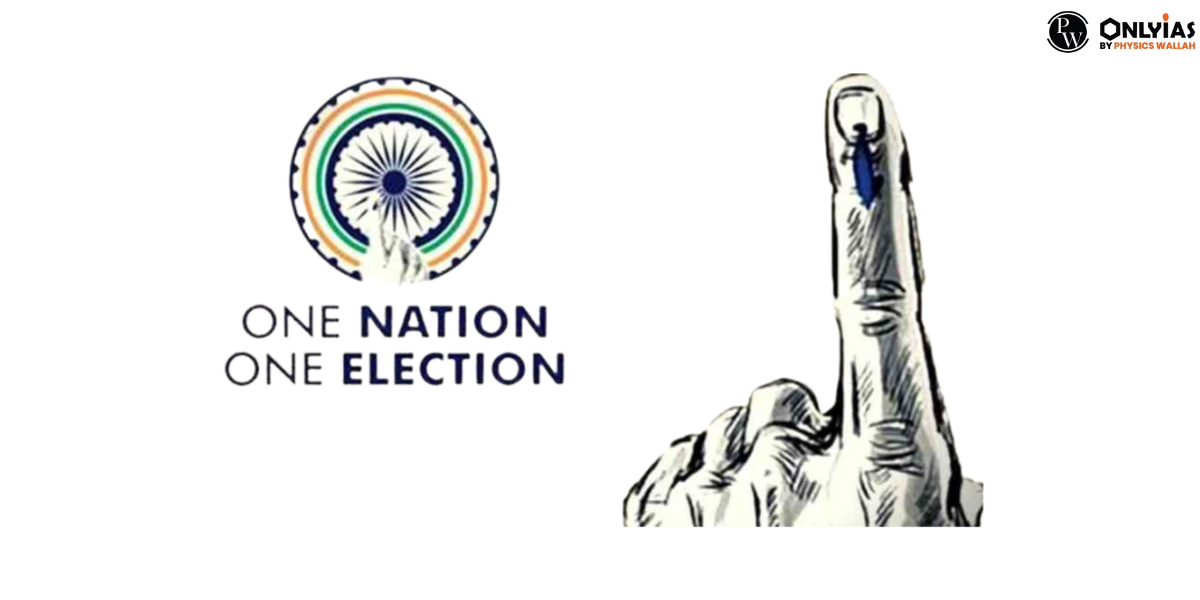Explore the crucial concept of "one nation, one election" in light of the possible connection between the March-April elections in four states and one Union territory.

One Nation One Election: Given the potential link between the March-April elections in four states and one Union territory and the second wave of Covid infections, a thoughtful discussion on the significant concept of “one nation, one election” is imperative.
The debate should center around five crucial issues: the financial costs associated with conducting elections, the repeated administrative freezes, both visible and invisible costs of frequently deploying security forces, the campaign and finance costs incurred by political parties, and the concern of ensuring a level playing field for regional/smaller parties.
‘One Nation, One Election’ proposes simultaneous elections across the country, wherein elections for the Lok Sabha and all state assemblies would occur concurrently. Currently, these elections are held separately after the five-year term of the incumbent government ends or if it dissolves for various reasons.
Prime Minister Narendra Modi has long championed the concept of One Nation, One Election. It was a key element in the Bharatiya Janata Party’s 2014 Lok Sabha Polls manifesto.
Proponents argue that this approach would reduce the overall expenditure associated with the electoral process. The frequent occurrence of elections in different states leads to substantial costs for the Election Commission of India (ECI) and candidates.
Advocates also contend that One Nation One Election could enhance administrative efficiency. Currently, during elections, the entire state machinery is dedicated to ensuring a fair electoral process, affecting day-to-day administration. Simultaneous elections may increase voter turnout, providing greater convenience for the electorate.
This concept is expected to introduce consistency and continuity in the policies and programs of both the Central government and states. The enforcement of the model code of conduct during Lok Sabha polls restricts states from launching new projects or schemes until the conclusion of the elections.
The primary hurdle facing the implementation of ‘One Nation One Election’ is synchronizing the terms of various state legislative assemblies with that of the Lok Sabha. Ambiguity persists regarding how to handle situations like midterm polls or the imposition of President’s rule if a party fails to secure a majority.
Regional political parties argue that simultaneous elections would undermine their influence by diminishing the focus on local issues. Additionally, they express concerns about their ability to compete with national parties in terms of financial resources and election strategies.
| Related Links | |
|---|---|
| Mission Karmayogi Ministry | Sahakar Mitra Scheme |
| PM SVANidhi Scheme | One Nation One Ration Card Scheme |
| Must Read | |
| NCERT Notes For UPSC | UPSC Daily Current Affairs |
| UPSC Blogs | UPSC Daily Editorials |
| Daily Current Affairs Quiz | Daily Main Answer Writing |
| UPSC Mains Previous Year Papers | UPSC Test Series 2024 |
Efforts are underway to create a system that guarantees voters need only visit the polling booth once to cast their ballots for both Lok Sabha and assembly elections once they are synchronized.
The One Nation, One Election proposal advocates for conducting concurrent elections for both the Lok Sabha and state legislative assemblies, underscoring the importance of achieving consensus in the national interest.
Critics argue that compelling simultaneous elections goes against the spirit of democracy. They contend that attempting to impose an artificial election cycle and limiting voter choices is inherently undemocratic.
Not only would holding simultaneous elections cut short the terms of Assemblies, but it could also mean that voters have to decide on all issues related to these three tiers in a single vote. This goes against the idea of federalism and the basic structure of three-tier governance.
<div class="new-fform">
</div>